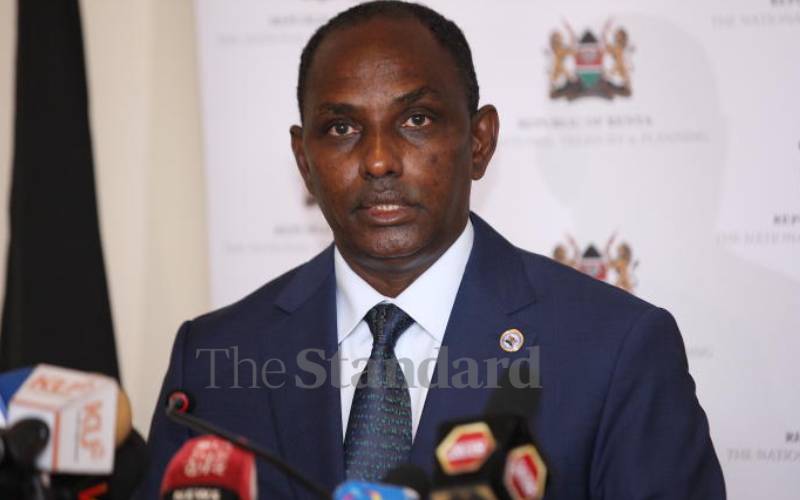×
The Standard e-Paper
Stay Informed, Even Offline

The government’s arrears to contractors and suppliers dropped by Sh33.2 billion in three months to March, marking the first quarterly fall in pending bills in the financial year ending June 2022.
Treasury data shows the stock of pending bills eased from December’s Sh467.7 billion to Sh434.5 billion at the end of March, cutting the trend where the arrears had swelled for three consecutive quarters.